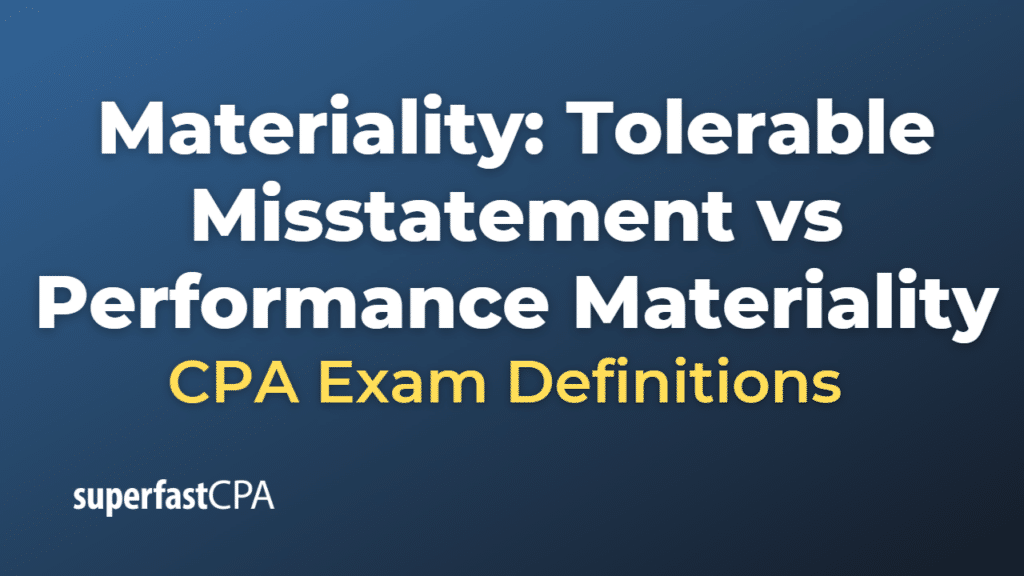Materiality: Tolerable Misstatement vs Performance Materiality
Performance materiality and tolerable misstatement are terms that are often used interchangeably in the context of financial statement audits. They both refer to the maximum amount of misstatement or error that an auditor is willing to accept in a specific account balance, class of transactions, or disclosure without considering the financial statements to be materially misstated. Both concepts are derived from the overall materiality threshold calculated for the financial statements as a whole and are typically set at a lower level.
The difference between the terms primarily lies in the terminology used rather than the underlying concept. Some audit standards, guidance, or textbooks may use one term over the other, but they essentially refer to the same concept. The choice of using one term over the other may depend on the preference of the audit firm, the specific audit standard being followed, or the jurisdiction where the audit is being conducted.
In practice, auditors may use either term to describe the threshold for assessing the risk of material misstatement associated with specific account balances, classes of transactions, or disclosures. The term used should be consistent with the audit methodology, audit standard, and jurisdiction where the audit is being conducted.
Regardless of the term used, the concept serves several essential purposes in a financial statement audit, including planning and performing audit procedures, assessing the risk of material misstatement, allocating audit resources, and evaluating audit findings. It is crucial for auditors to exercise professional judgment when determining performance materiality or tolerable misstatement levels, considering the overall materiality threshold, the assessed risks of material misstatement, and the specific circumstances of the entity being audited.













